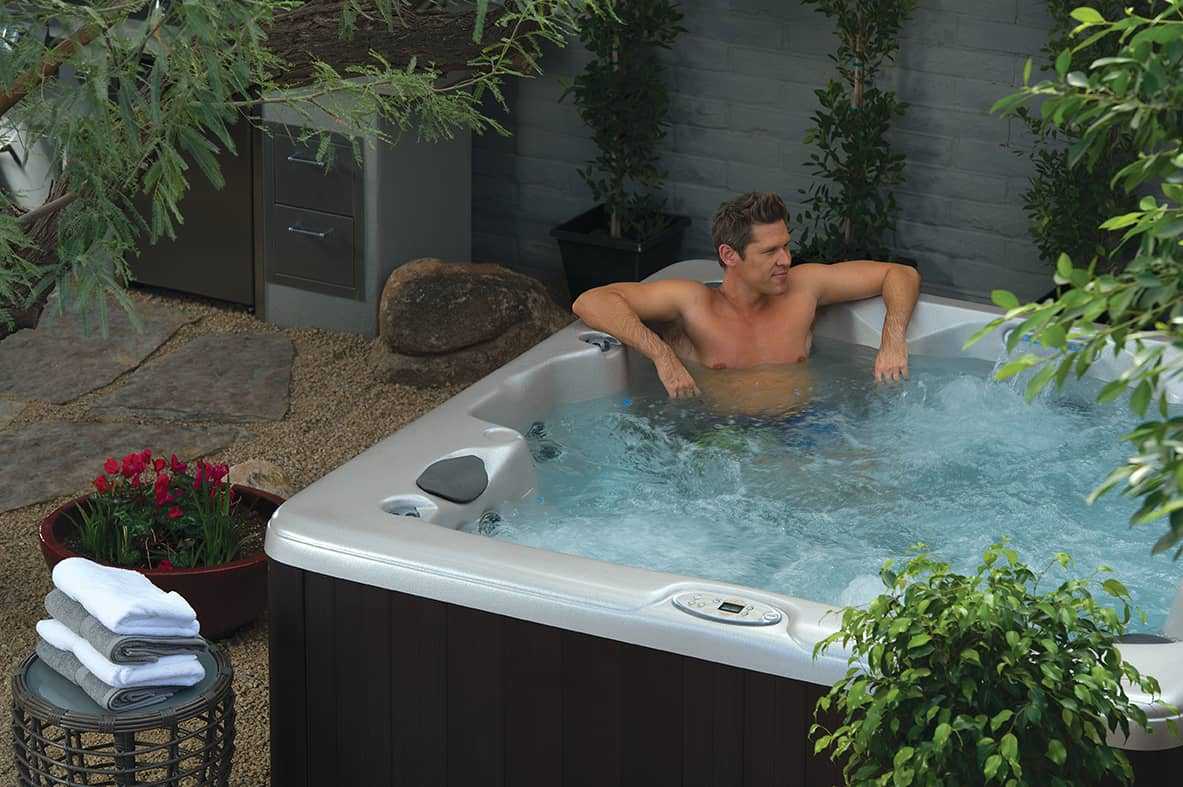ME
NU

A Routine and a Hot Tub can Help You Sleep!
Adults require 7 to 9 hours of quality sleep in order to function optimally at work and in social interactions. Yet, 1 in 5 people experience sleep difficulties. Many tired people turn to medication for assistance. The following are some simple actions that can help improve your sleep without resorting to drugs:
Establish a bedtime:
Your body is designed to sleep and wake at the same time ea ch day. Before artificial lighting, your body signalled its need for sleep when the sun went down and woke when the sun rose. It’s now up to you to signal your body that it’s time to sleep. Decide what bedtime works for you and stick with it.
Create a routine:
When the light dims, our brains receive the signal to start producing melatonin (a hormone that makes us sleepy). With the advent of artificial light and the increased use of screens, our body rarely gets the signal that it is time to unwind. Create a routine to help signal your body that it is nearing bedtime.
- Dim the lights and turn off all screens approximately an hour before your established bedtime. The blue light from your screens stimulates your brain and keeps you awake.
- Eat a light, pre-bedtime snack (if you’re hungry) as hunger is stimulating and fragments sleep. Foods like oatmeal, yogurt, or nuts will boost your melatonin levels.
- Try a warm cup of tea or your favourite beverage. Consider turmeric golden milk as turmeric is a superfood that can help with sleep.
- Lower the thermostat to 18 degrees Celsius as this has been proven to be a good temperature for sleep.
- Listen to music to improve sleep quality.
- Consider meditation as it reduces insomnia.
- Clear your mind of worry by creating a to-do-list for the next day.
- Get into bed at your established bedtime. You don’t want your body to get used to being awake in bed, so don’t crawl in until it’s time to sleep.
Soak in a hot tub:
A drop in core body temperature increases your chance of both falling asleep and enjoying deep layers of sleep. One of the best ways to trigger a drop in your body temperature is to raise it a few degrees approximately 90 minutes before your bedtime. A 20 to 30-minute soak in a hot tub will relax you and increase your core temperature, decreasing the time it takes to fall asleep and helping you reach REM sleep (the deepest stage of sleep) more quickly.
Try aromatherapy:
Lavender essential oils can increase the quality of sleep and reduce anxiety. Adding 5 to 10 drops of soothing Lavender to your hot tub can help with relaxation. Jasmine and chamomile are also relaxing. If you don’t feel comfortable adding oils to your spa, add a few drops to a soy or beeswax candle and set it near the hot tub.
A regular bedtime ritual helps separate sleep from daytime activities that cause excitement, stress and anxiety. Establish a bedtime. Begin a wind-down routine between 30 to 90 minutes before your bedtime. Make 20 of these minutes a relaxing soak in your hot tub. Be consistent and you’ll train your body for sleep and encourage productivity the next day.
Having trouble sleeping? Willing to try a hot tub to improve your sleep? Need help making a hot tub purchase during the pandemic? The experts at RnR Hot Tubs and Spas are here to help. With over 200 hot tubs available for sale, we’re the spa shop for you. Owned by service professionals with over 30 years of experience, we help make your hot tub purchase exceptional. Please call 403-203-0860 to set up an appointment.
Be the first to comment